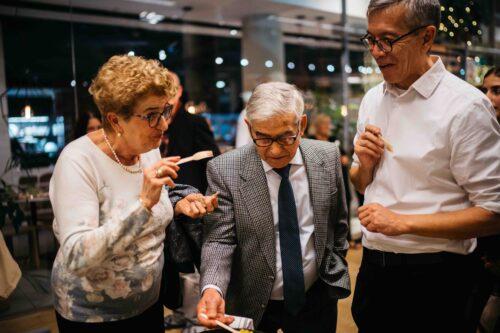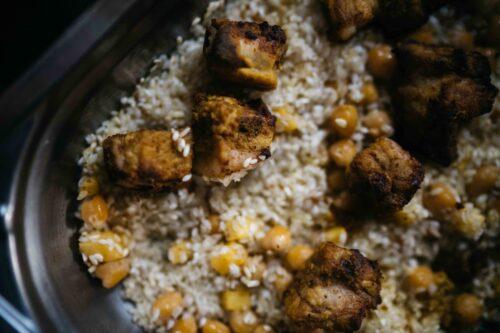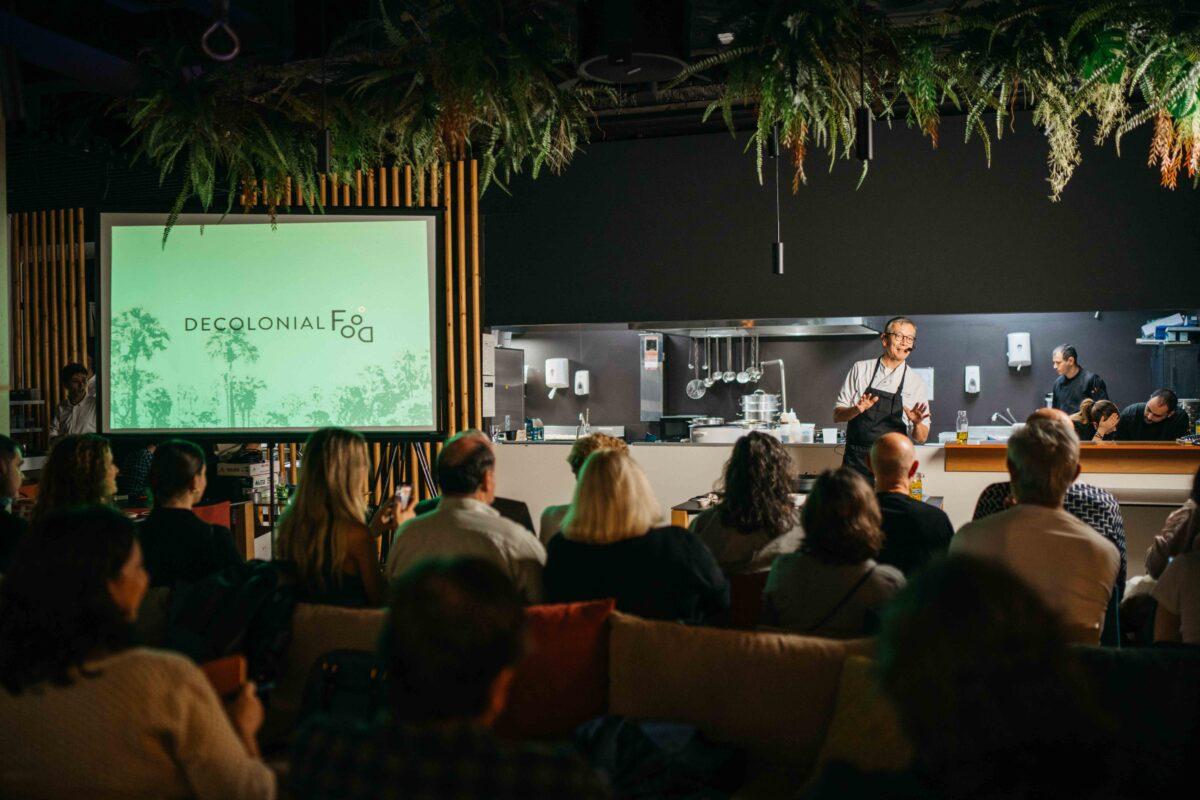Food
Ma Khin’s Second Decolonial Food event
Ma Khin Café had a full house for its second Decolonial Food event. The Decolonial community responded to the call and turned up for another enjoyable evening in good company. Before sitting down for supper. Steve Anderson gave a cooking demo in which he explained his vision of food and showed us his interpretation of a Valencian biryani.
“Food and cooking is something that is in a state of constant evolution accompanying the changes we see in our societies” contended Steve. During the demo he explained how, from the 1990s onwards, technology was a major force for change in the way we eat, and he gave the example of molecular cooking, whose maximum exponent was Ferran Adrià at El Bulli. More recently, we have seen how chefs have focussed on rediscovering tried-and-trusted dishes from the past, a new look at traditional local recipes and ingredients.
“We are not revolutionising food” the chef clarified, “rather we are interacting with a process of change that takes place when different cultures come into contact and have a mutual influence on each other’s way of eating.”

Adapting Valencian recipes to Southeast Asian food
In the first Decolonial Food event, held in October earlier this year, we took a look at how Burmese cooking adapts to locally sourced Mediterranean produce. As Steve says: “whenever you bring a dish from one country to another, or from one culture to another, the dish evolves in the process, because you cannot always find those original ingredients in the new setting.”
The point of departure for the second event was a new question: What happens when traditional Valencian dishes come into contact with ingredients and cooking methods from Southeast Asian food? Steve and his team put greta value on everyday food cooked at home. So on this occasion they sought the help of Lolita Bellver, a mother, grandmother and home cook from Castelló (Ribera Alta), well versed in the gastronomic tradition of her region. The time they spent cooking and eating at Lolita’s home kickstarted a process of experimentation which ended up in a number of exquisite and tasty dishes, where Asian ingredients and cooking methods were incorporated into traditional Valencian recipes.
“We have great respect for Valencian food and indeed for all gastronomic traditions around the world. Traditional cooking sits comfortably alongside more experimental gastronomy, and this has always been the case. Whether traditional or innovative, it is our duty, as professional chefs, to come up with TASTY dishes,” Steve emphasised during the cooking demo.
“As professional chefs, to come up with TASTY dishes”, Steven Anderson
And, it goes without saying, the evening’s menu was more than tasty, judging by the views and opinions of the 50+ people in attendance, who included, of course, Lolita and her family. A wonderful woman who loves traditional recipes, Lolita was eager to try the dishes Ma Khin Café served up for the occasion.
Praise during the aperitif of the second Decolonial Food event
During the drinks and snacks following the demo she was full of praise for the esgarraet with cured spiced sea bass. The coca with turmeric, tomato and tuna was another big hit, while she found the Valencian biryani really delicious.
Valencia biryani, the Ma Khin Café’s take on arròs al forn amb fessols i naps
Biryani is a popular dish in Indian cooking, generally associated with the Mogul empire. Here at Ma Khin Café, for one night, we turned it into a dish that brings together two rice-loving regions, Asia and Valencia. Some of the main differences highlighted by the chef were:
- Following the custom in India, the ribs were first marinated before frying them with yogurt and spices (turmeric, garlic, ginger and nutmeg) to make them nice and tender.
- The spices are sautéed very briefly before adding the garlic, meat, and the rest of the ingredients.
- The condiments used in the biryani are typically Asian: star anise, cardamom, cinnamon, laurel, chili and saffron.
- Though sunflower oil is more commonly used in Indian cooking, for the Valencian biryani Steve and his team used, as you would expect here in Valencia, olive oil.
The end result was a really delicious dish which satisfied even our harshest critics: Lolita and her family.

And to round it all off, a wonderful supper to fit the occasion shared with friends:
Four starters inspired by typical products and dishes from Valencia, but with a special twist: artichoke salad with lime pickle; green curry steamed bouchot mussels (similar to the clochina from Valencia); Ma Khin Café chicken croquettes; and Thai saam figatell. And for the main course, Ma Khin’s homage to La Espardeña: duck and eel curry. The dinner was rounded off with baked pumpkin with ginger and almonds.
An enjoyable evening spent with friends which we hope to repeat before too long.
Would you like to join us? Sign up to our Community and we will send you information on upcoming Decolonial Food events.
.png)
